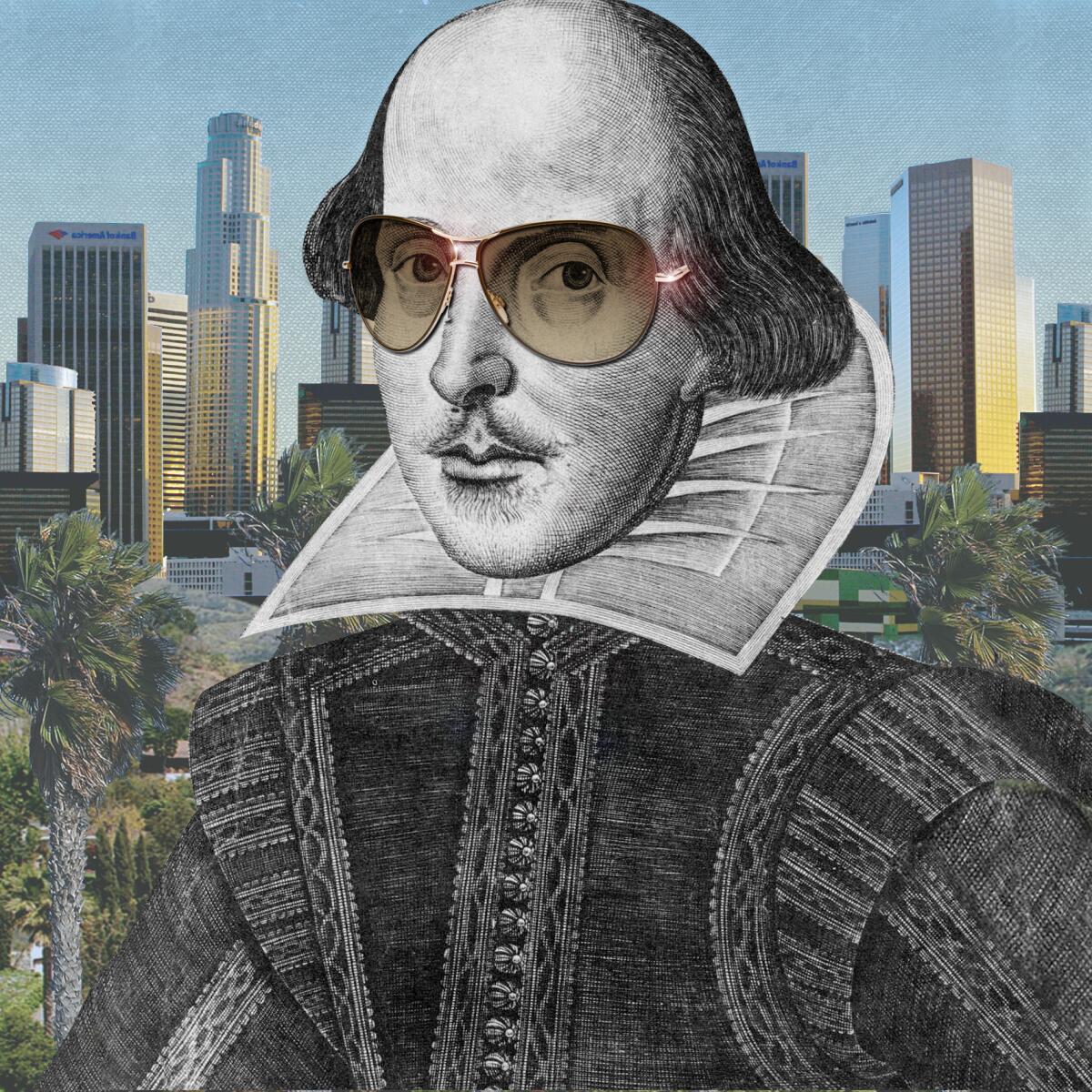Was Shakespeare a stoner? Scientist finds marijuana residue in playwright’s pipes

William Shakespeare’s pipes show marijuana residue, a scientist says.
What’s in a name? That which we call some dank bud by any other name would smell as sweet.
William Shakespeare didn’t write those words exactly, but scientists think it’s possible that the Bard of Avon might have been acquainted with a certain relaxing herb. In an article published in the Independent, South African anthropologist Francis Thackeray says four pipes found in Shakespeare’s garden have tested positive for cannabis residue.
Thackeray and his colleagues tested several of Shakespeare’s clay tobacco pipes “using a sophisticated technique called gas chromatography mass spectrometry,” the scientist writes.
NEWSLETTER: Get the day’s top headlines from Times Editor Davan Maharaj >>
The pipes from Shakespeare’s garden might have been used to smoke pot, but they tested negative for cocaine, which was also consumed by some in the playwright’s era. “Shakespeare may have been aware of the deleterious effects of cocaine as a strange compound,” Thackeray writes. “Possibly, he preferred cannabis as a weed with mind-stimulating properties.”
Thackeray cites Shakespeare’s Sonnet 76, which some claim indicates the author’s fondness for dope: “Why with the time do I not glance aside / To new-found methods, and to compounds strange? / Why write I still all one, ever the same, / And keep invention in a noted weed...”
“This can be interpreted to mean that Shakespeare was willing to use ‘weed’ (cannabis as a kind of tobacco) for creative writing (‘invention’),” Thackeray writes. It’s not clear that “weed” was used as a synonym for marijuana in 16th and 17th centuries, though; in Slate, Ben Yagoda notes that it was listed as a “new word” in an academic journal in 1929.
It remains unlikely, of course, that anyone will ever be able to prove definitively that Shakespeare was a pothead, unless historians somehow discover a stash of Doritos and “The Big Lebowski” DVDs in his garden.
ALSO:
Tom Tomorrow’s omnibus book tops $310,000 on Kickstarter
Video: This Taylor Swift-Harry Potter mashup has the Internet exploding from joy
Review: Close encounters with feminist science fiction in ‘Sisters of the Revolution’
More to Read
Sign up for our Book Club newsletter
Get the latest news, events and more from the Los Angeles Times Book Club, and help us get L.A. reading and talking.
You may occasionally receive promotional content from the Los Angeles Times.
![Los Angeles, CA - May 19: Oscar Magana, 22, left, who struggles with mental problems but does not use drugs, sits in his tent as his step father, Johnny Roman, right, 58, who is addicted to meth, bipolar, manic depressive, and ADHD, puts bags of supplies for drug use in their tent encampment near Avalon Boulevard and East Florence Avenue in South Los Angeles Friday, May 19, 2023. The bags of supplies were distributed by a team from Homeless Outreach Program Integrated Care Systems [HOPICS] and includes drug pipes, overdose reversal nasal spray, fentanyl test strips, wipes and educational materials are aimed at preventing infection and disease, and saving them from the fentanyl death crisis. (Allen J. Schaben / Los Angeles Times)](https://ca-times.brightspotcdn.com/dims4/default/ab5c2ec/2147483647/strip/true/crop/3900x2608+0+163/resize/320x214!/quality/75/?url=https%3A%2F%2Fcalifornia-times-brightspot.s3.amazonaws.com%2Ff2%2Fc8%2Fa65d8e8f48afab4d760e8df4219e%2F1298639-me-soaring-fentanyl-deaths-16-ajs.jpg)






